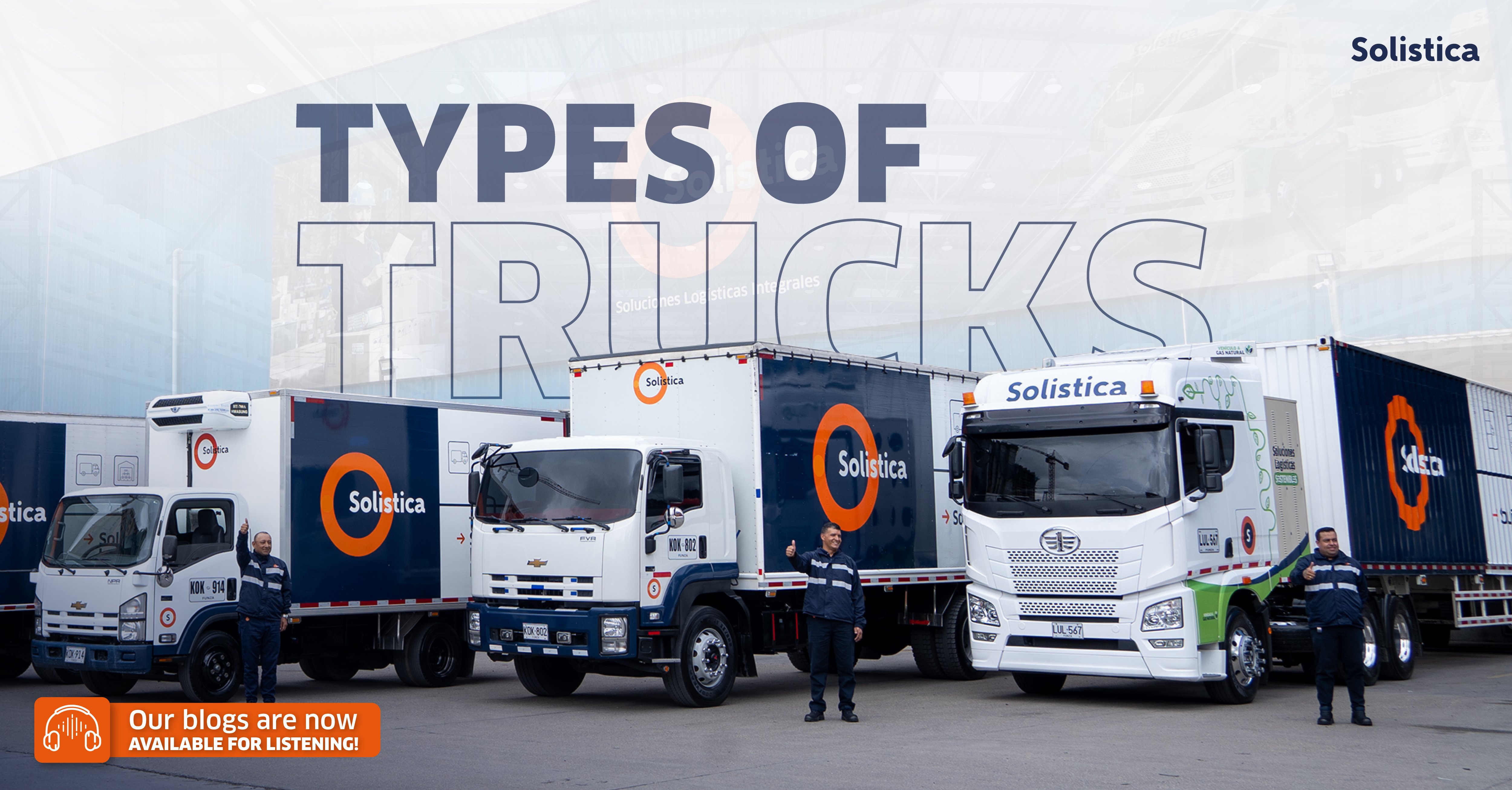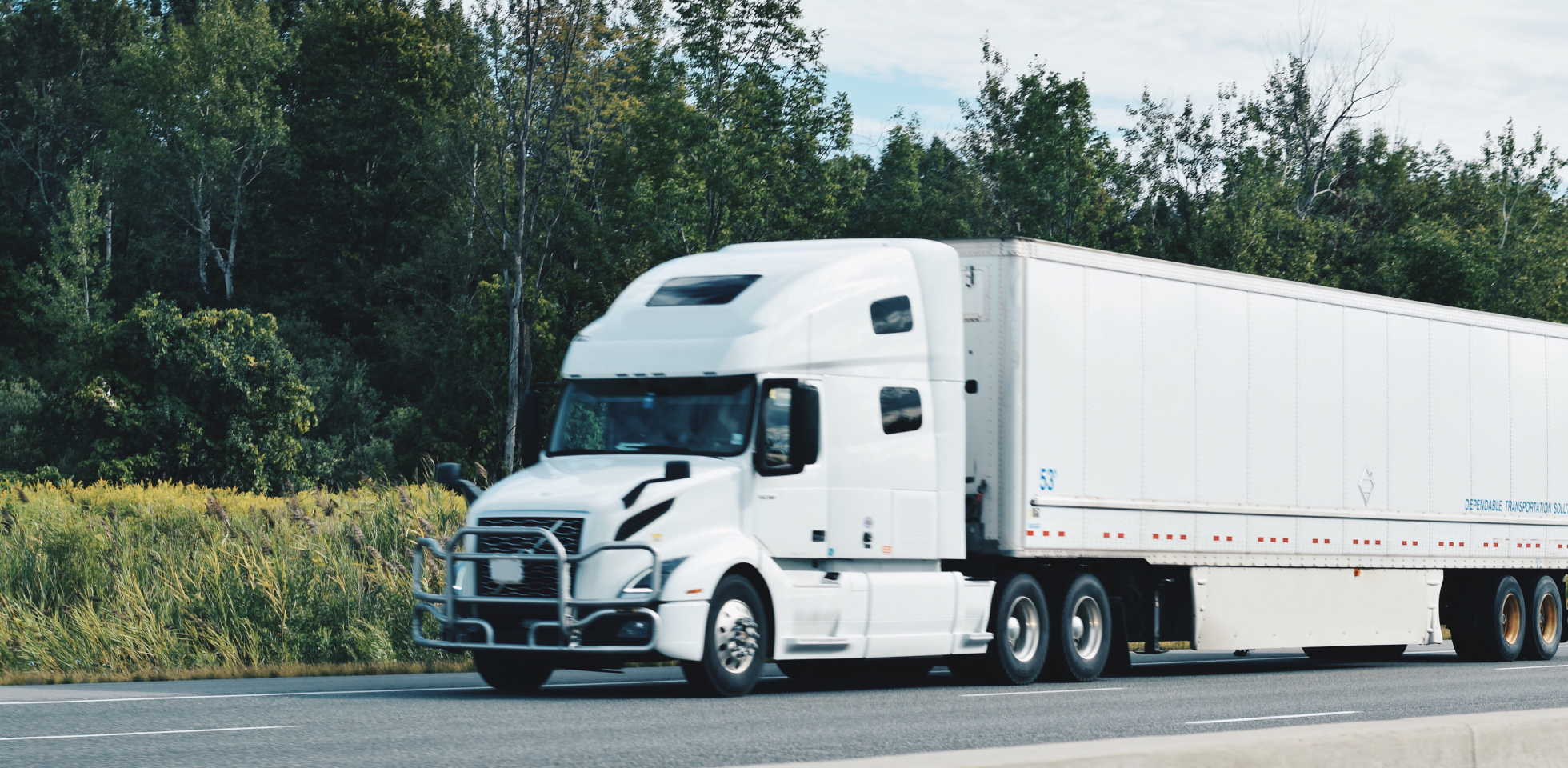In the contemporary logistics environment, trucks are established as indispensable elements that keep the wheels of global trade moving. From the congested streets of our cities to the vast highways that connect countries and continents, these freight vehicles play a vital role in the efficient and timely delivery of goods. As market demands evolve and environmental awareness grows, the freight transportation industry adapts, constantly innovating to offer more efficient and sustainable solutions. Let's explore the different types of trucks that are revolutionizing the logistics industry and how they are shaping the future of freight transportation.
Rigid Trucks: Versatility in Urban Deliveries
Rigid trucks have become a fundamental pillar in urban logistics, standing out for their compact and unitary structure. In these vehicles, the driver's cab and trailer form a single indivisible piece, which gives them exceptional maneuverability in tight spaces.
"Generally, rigid trucks are used by delivery and distribution companies. Due to their characteristics, they are the most suitable for parcel deliveries in urban areas". Blog - Ubicalo.com
With a typical length of 12 meters and a payload capacity of up to 32 tons, these vehicles are the preferred choice for delivery operations in densely populated urban areas. Their compact design allows them to navigate narrow streets and make frequent stops, essential features in last-mile delivery.
Rigid trucks don't just shine in urban environments. Their versatility makes them equally effective on short-haul suburban and rural routes, where flexibility and adaptability are all-important. From fresh food distribution to parcel delivery, these vehicles are the backbone of many local logistics operations.
Articulated trucks: Power for long distances
In contrast to their rigid truck counterparts, articulated trucks offer greater flexibility and load capacity, making them the preferred choice for transporting large volumes of goods over long distances. They consist of a tractor unit and a detachable semi-trailer, a configuration that allows for unparalleled versatility in load handling.
"Articulated trailers are composed of two blocks or more, linked by an articulating structure (hence the name)". Blog - Ubicalo.com
This modular structure facilitates the loading and unloading of goods while allowing logistics companies to optimize their operations. For example, a tractor unit can be coupled to different semi-trailers according to the specific needs of each trip, maximizing efficiency and reducing downtime.
Articulated trucks are the undisputed protagonists of long-distance transport. With load capacities that can exceed 40 tons, these vehicles are fundamental in the movement of goods between cities, countries and even continents. Their efficiency in terms of cost per tonne transported makes them the backbone of international trade.
Mega Trucks: Giants of the Road
For even greater freight demands, megatrucks are entering the scene, redefining the limits of what is possible in overland freight transport. With lengths that can exceed 25 meters and capacities of up to 60 tons, these behemoths on wheels are setting new standards for efficiency in high-volume transport.
"Experts estimate that companies can reduce the costs associated with freight transport by up to 50% in the long term". Blog - Ubicalo.com
Megatrucks not only offer economic advantages, but also environmental ones. By transporting more cargo per trip, they significantly reduce the number of vehicles on the road, allowing for less congestion and CO2 emissions. According to European Union data cited in the report, the use of mega-trucks can save up to 305,000 tons of CO2 emissions per year.
However, the operation of these giants requires special considerations. Their size demands adequate road infrastructures and highly trained drivers. In addition, their circulation is often subject to specific regulations and requires special authorizations in many countries.
The green bet: Euro IV and electric trucks from Solistica
At the forefront of logistics innovation, Solistica is leading the way towards more sustainable transport, combining operational efficiency with environmental responsibility. Its Euro IV trucks represent a significant advance in emissions reduction, meeting the strict environmental regulations set by the European Union.
Euro IV regulations, which came into force in 2005, set stringent limits for nitrogen oxide and particulate emissions, forcing manufacturers to implement advanced emission control technologies. Solistica's Euro IV trucks meet these standards and deliver exceptional performance, proving that sustainability and efficiency can go hand in hand.
But Solistica goes further with its innovative fleet of electric trucks. "Solistica's routes in Brazil currently have 100% electric trucks, with 250 km of autonomy, zero noise, zero CO² emissions, and which also generate less waste, due to their low use of fluid oils". Blog Solistica -Nuestras rutas más sostenibles, un caso de logística verde en Solistica Brasil
These electric vehicles reduce the carbon footprint of logistics operations, and also offer significant operational advantages. Their quiet operation makes them ideal for night deliveries in urban areas, while their reduced number of moving parts translates into reduced maintenance costs.

Weight classification: From light to super heavy duty
The diversity of cargo trucks also extends to their weight classification, offering solutions for every link in the logistics chain. This categorization defines load capacities and influences aspects such as driver licensing requirements and applicable traffic regulations.
- Light trucks (500 kg - 2.5 tons): Ideal for urban deliveries and courier services, these vehicles offer agility and efficiency in congested spaces.
- Medium trucks (2.5 - 7.5 tons): Versatile and capable of handling more substantial loads, they are perfect for regional distribution and moving services.
- Heavy-duty trucks (7.5 - 18 tons): These vehicles are the mainstay of intercity freight transportation, offering a balance between load capacity and maneuverability.
- Super heavy trucks (over 18 tons): Including the mega trucks mentioned above, these behemoths can move loads of up to 250 tons, making them essential for transporting heavy machinery and exceptional loads.
Technological innovations in freight transport
The revolution in freight transportation is not limited to electric propulsion. Leading logistics companies, such as Solistica, are implementing a number of technological innovations to optimize their operations and improve efficiency.
Advanced telemetry: Solistica has invested in telemetry systems that enable real-time tracking of its vehicles. "We implemented a training simulator for all its drivers, a technology that in Colombia is more than necessary to guarantee safe traffic and life on the roads," says Juan David Mejía, Solistica's Latincentro operations manager, in an interview for Semana.com.
These systems not only improve safety, but also optimize routes and reduce fuel consumption, contributing to more efficient and sustainable logistics.
Autonomous vehicles: Although still in the experimental phase, autonomous trucks promise to revolutionize long-distance transport, offering 24/7 operations and reducing human error.
Internet of Things (IoT): The implementation of IoT sensors on trucks and cargo enables constant monitoring of transport conditions, crucial for sensitive goods such as pharmaceuticals or perishable foods.
The Future of Transportation: Innovation and Sustainability.
The freight transportation industry is constantly evolving, adapting to changing market demands and growing environmental awareness. Solistica, for example, is investing in electric vehicles and optimization technologies, also exploring innovative solutions for urban logistics.
"We allocated a significant sum to the acquisition of a new fleet of green vehicles, one hundred percent electric, zero emissions, with autonomy of up to 180 kilometers and load capacity of more than 3,500 kilos per trip, without mobility restrictions," says Juan David Mejía in the interview for Semana.com.
In addition, Solistica is experimenting with micromobility solutions for last-mile deliveries. Its project to implement a fleet of electric cargo bikes in Bogota is an example of how innovation can address the challenges of urban congestion and environmental sustainability.
The diversity of trucks in modern logistics reflects the complexity and varied demands of global trade. From versatile rigid trucks to innovative electric vehicles, each type of truck plays a crucial role in the supply chain. As the industry moves toward more efficient and sustainable solutions, companies like Solistica are at the forefront, driving the future of freight transportation.
The future of freight transportation promises to be cleaner, more efficient and smarter. With the combination of electric vehicles, optimization technologies and innovative last mile solutions, the logistics industry is poised to meet the challenges of tomorrow, ensuring that the flow of goods continues in a sustainable and efficient manner in an increasingly connected and environmentally conscious world.
Discover how Solistica can transform your supply chain with its fleet of eco-friendly vehicles and state-of-the-art technology. Contact us today and take your business to the next level of efficiency and sustainability!






